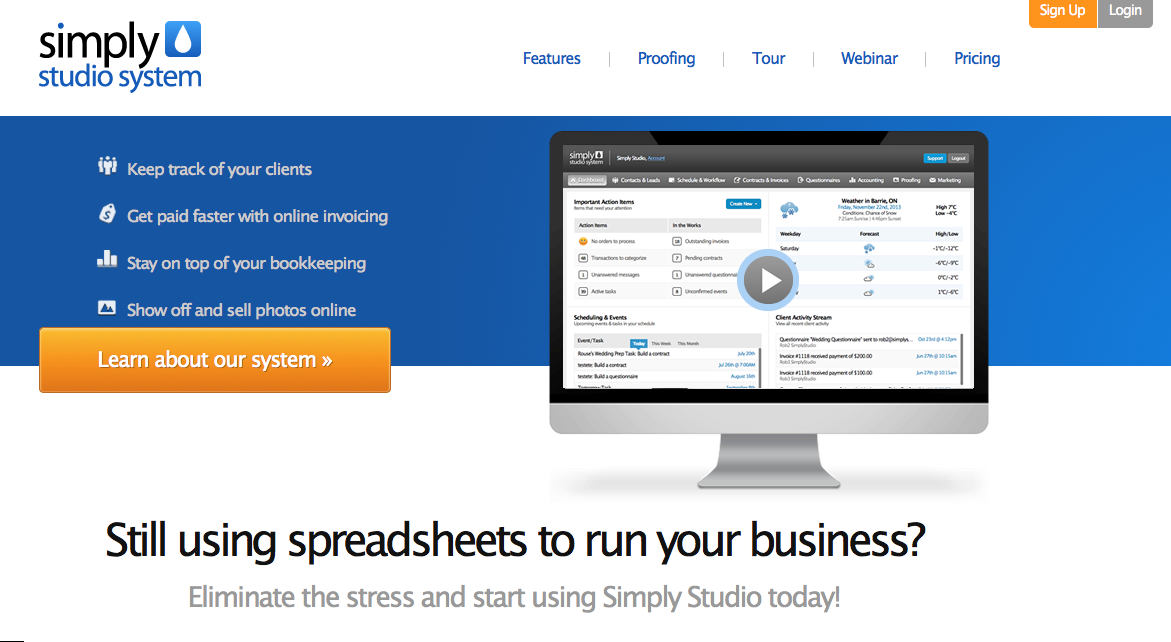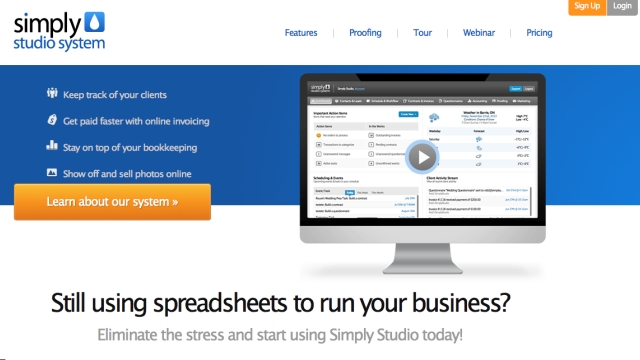Introduction:
Running a successful photography studio requires not only technical skills and a creative eye but also effective management strategies. In today’s digital age, where client expectations are higher than ever, incorporating a Customer Relationship Management (CRM) system into your studio management arsenal can be a game-changer. CRM offers a comprehensive solution to streamline your workflow, enhance client relationships, and maximize your studio’s efficiency.
As a photographer, your passion lies in capturing those perfect moments and telling stories through your lens. However, juggling various tasks such as scheduling appointments, managing client details, and keeping track of invoices can often become overwhelming. This is where a CRM comes in. By integrating easy-to-use CRM software specifically designed for studio management, you can simplify these processes and create a smooth, seamless experience not only for yourself but also for your clients.
Benefits of Using CRM for Studio Management
Client ManagementStreamlined Client Management:
By incorporating a CRM system into your studio management processes, you can efficiently handle and organize your client interactions. With a centralized database, you can easily access and update client information, such as contact details, project history, and preferences. This allows for better communication, personalized service, and a more seamless client experience. Additionally, CRM enables you to track interactions, set reminders for follow-ups, and manage client inquiries and feedback, helping you build stronger relationships and ensure client satisfaction.Efficient Invoicing and Financial Management:
Keeping track of invoices, payments, and financial transactions can be time-consuming and prone to errors. However, with a CRM system designed for studio management, you have the ability to automate and streamline the invoicing process. By integrating the CRM with your accounting software, you can easily generate and send invoices, track payment statuses, and manage financial records. This not only saves you time but also minimizes the risk of mistakes and allows for more accurate financial management.Enhanced Project Organization and Time Management:
Effective studio management requires the ability to keep track of ongoing projects, deadlines, and task assignments. A CRM system can help you stay organized by providing project management features. You can create and assign tasks, set reminders, and monitor progress within the CRM platform. This enables you to better allocate resources, meet deadlines, and optimize your team’s efficiency. By having a clear overview of all projects in one place, you can effectively plan and prioritize tasks, reducing the chance of overlooked or delayed projects.
Remember, integrating a CRM system into your studio management processes can have many benefits, including streamlined client management, efficient invoicing and financial management, and enhanced project organization. These advantages contribute to increased efficiency and success in running your photography studio.
Streamlining Workflow and Efficiency
In the fast-paced world of photography, efficient workflow management is crucial for success. By implementing a CRM system tailored specifically for studio management, photographers can streamline their operations and boost overall efficiency. Here, we explore how a CRM solution can revolutionize the way photographers handle tasks such as client management, invoicing, and project coordination.
First and foremost, a CRM system allows photographers to centralize their client management processes. With all client information at their fingertips, photographers can easily access details such as contact information, project history, and preferences. This eliminates the need for manual record-keeping and ensures that nothing falls through the cracks. By keeping track of client interactions and preferences, photographers can provide a personalized experience and build stronger relationships with their clients.
Additionally, a CRM system simplifies the invoicing process, saving photographers time and effort. Instead of manually creating invoices and tracking payments, a CRM solution automates these tasks. Photographers can generate professional-looking invoices, set up automated reminders for overdue payments, and even integrate with accounting software for seamless financial management. With streamlined invoicing, photographers can focus more on their craft and less on administrative tasks.

Finally, a CRM system enhances project coordination by providing a centralized platform for collaboration. With shared calendars, task management tools, and communication features, team members can stay organized and work together efficiently. Photographers can easily assign tasks to team members, set deadlines, and track progress. This ensures that projects are completed on time and in a coordinated manner, leading to increased productivity and client satisfaction.
In conclusion, utilizing a CRM system designed for studio management can significantly improve workflow and efficiency for photographers. From client management to invoicing and project coordination, a CRM solution offers a range of features that streamline operations, allowing photographers to focus on what they do best – capturing captivating moments. By adopting a CRM system, photographers can elevate their studio management practices and achieve greater success in their profession.
Improving Client Relationships and Engagement
One of the most crucial aspects of studio management is building strong relationships with clients and ensuring their engagement throughout the entire process. By utilizing a CRM solution, such as the one we have discussed earlier, photographers can effectively enhance client relationships and foster a greater level of engagement.
Firstly, CRM software provides a centralized platform where photographers can store and access vital client information. This enables them to have a comprehensive understanding of each client’s preferences, needs, and past interactions, allowing for more personalized and tailored communication. By utilizing this information, photographers can engage with their clients in a more meaningful way, enhancing the overall client experience.
Secondly, CRM systems offer tools for effective client communication. They enable photographers to send automated emails, reminders, or updates to clients, reducing the chances of missed deadlines or miscommunication. Such consistent and timely communication not only helps in keeping clients engaged but also reinforces a sense of professionalism and reliability, ultimately boosting client satisfaction and loyalty.
Finally, CRM solutions also support effective client feedback management. With the ability to track client feedback and suggestions, photographers can address any concerns or issues promptly. This demonstrates a genuine commitment to client satisfaction and fosters a sense of trust and partnership. By actively involving clients in the process and valuing their input, photographers can ensure higher levels of engagement and create long-lasting relationships.
In conclusion, CRM systems play a significant role in improving client relationships and engagement within the context of studio management. By leveraging the features and capabilities of such software, photographers can establish personalized communication, efficient client interaction, and effective feedback management. These factors contribute to an enhanced client experience and ultimately lead to increased success and growth for the studio.




